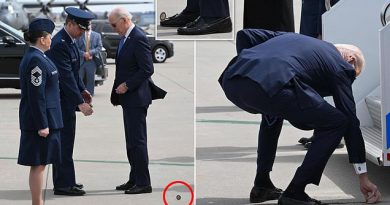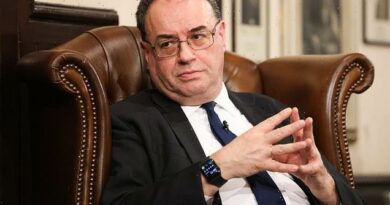Tūī Matira Ranapiri Ransfield: My story, as told to Elisabeth Easther
Contemporary performing arts creator Tūī Matira Ranapiri Ransfield provided the inspiration for Ōkāreka Dance Company’s internationally acclaimed work Mana Wāhine , playing January 28-30 at Q Theatre.
‘When couples first get married, they are so absolutely besotted in love that, when they start to have children, those kids are made out of pure love. As the first-born, my mother used to tell me that I was her and dad’s love child. When she said that, I would ask her, what do you mean? Do you not love the others? I’m the oldest of seven — five girls and two boys — and Mum said, yes of course I love them, but you were different — you are our love child. In fact, I was at their wedding, growing inside my Mum’s āhuru mōwai. She said diplomatically that we were all made out of love, but as I mature, and understand life, I understand the concept of those early stages of Mum and Dad’s intimate time together, that special love they shared.
‘The first four children were born a year apart. We all slept together in a double bed. The two eldest on the outside, and the two youngest between us, and we slept together until I was 11. Best way to have kids, Mum would say. We all looked after each other, played together, had each other’s backs. I was a good daughter and a good big sister. Mum said I was helpful, that I could anticipate things and I never had to be told what to do. I’ve since helped to raise my sisters’ children, mokopuna tuarua, and tuatoru. I’ve not married, and am without my own children. It was something I considered in my 20s, and I would’ve had 10 kids, but that wasn’t meant to be and I have no regrets.
‘I walked before I crawled. I was 7 months old, and I recall it vividly. Mum was lying playing with me, as I sat on the floor in front of her. She was talking and singing to me, and I was responding with my Tūī-isms. My Dad came in, bent down, held out both arms, and called me. Mum said I stood up and walked directly to him. They were amazed, and while I didn’t do it again for some time, Mum said it showed her what sort of person I would be. Determined, spontaneous and impulsive.
‘From the age of 2, I stood in Te Aomarama Kapa Haka at Ōhinemutu and at 13 I was a professional cultural ambassador, and still am today, immersed in Rotorua’s tourism and cultural art scene, as a performer, narrator, tour guide and hostess. I’ve travelled to Europe, America, Asia, Australia and Polynesia, sharing our Māori world view with the globe. Since 2011, as a creator and Mātanga Mātauranga Māori in the contemporary dance industry, I continue to travel and I take Māori culture to festivals around the world. But you’ll never find me in a bar or sleeping in, or lying in the sun. I’ll be out there observing the dancing and singing from other cultures. I’ll be intermingling and trying to communicate because I love people. I am enthralled with anthropology ethnology, languages and history, all indigeneity.
‘Home, parents, grandparents, friends, our many pā, extended whānau, they have been my most powerful influences. I also loved learning, from kindergarten to high school. When I left school, I wanted to become a policewomen, but they weren’t taking people. I was 18, the right height and I had the fitness, so instead I did [shorthand] at Waiariki. I went back to the police at 20, they still weren’t taking people. At 21, when they were taking people, I wasn’t interested any more and instead I trained in early childhood education as a Pouako Kura Kaupapa Māori at Auckland College of Education. I am a passionate advocate and practitioner for te reo Māori .
‘Family is the foundation I was raised on. It’s about your autonomy, mana Māori motuhake, your sovereignty, tino rangatiratanga. How you live. How you think. How you are as a human being. What legacy you leave with people. To understand my Māori perspective is to understand my cultural heritage, my language, my wairua and my people. I’m Māori to the core. My gene pool descends from Ireland, Scotland, Belgium, France, England, and Polynesia. However, my hirikapo, my head, my ngākau, my heart and my puku are Māori exclusively. When I say puku, I mean my stomach, my belly, the very core, essence and guts of me. I’ll never dismiss my other heritages, but my whole life, my whole world view, I see through a Māori lens.
‘In 2003, the Human Rights Commission led a programme called Taku Manawa under Dr Jill Chrisp. Ten people were invited from Rotorua and 10 from Gisborne, and I wasn’t one of them. But I heard about it on the day of the pōwhiri, so I went up there, determined to do it. I spoke to Dr Chrisp and said I’d like to join the course.
‘She said the process was one of invitation. I said, I don’t care, I want to be on the course. She said there was only funding for 20 people. I said it won’t cost any more, speaking to 21 people is the same as speaking to 20. I was persistent and determined. At the big pōwhiri everyone but me was asked to speak, but I got up anyway. I laid down my manuka, my challenge and said, by the end of the day I expect to be a participant on this course — because I wanted to know about the Human Rights Commission, about people’s rights, birth rights, cultural inheritance, the law — the list goes on.
‘That afternoon, Dr Chrisp came up to me and said, I’d like to officially inform you, you’re on the course. At the end of the year — the course was held in segments — I was honoured to be asked to deliver the valedictorian speech at our graduation. After graduation, we delivered Human Rights Commission messages to corporations, government departments, all sorts of sectors, and then there was no money. Like every good thing that happens in this country, it’s running beautifully and all of a sudden there’s no money to do it any more.
‘I came out of the working system many years ago because I couldn’t just go to work and be told what to do and be happy. I like to be in charge of my own destiny. I’ve had work with great money, and I’ve also been pōhara (poor), but this is the life I chose for myself. The woman I am sacrifices time, sleep, money, to serve others.
‘I can do this because I’m single, sophisticated and totally Polynesian. A free spirit, a child of God, with the freedom to travel, and immerse myself in other cultures. Some people may think that’s a lonely life, but I have a big family, and excellent friends. I’m not saying I’ve never felt lonely or alone, but I know how to fix that. And I love solitude. I meditate all the time. I karakia all the time. I compose incantations and take them to the bedsides of people in hospitals or who are dying at home. One of the biggest things I’ve been able to contribute to people, to this world, is my time, my knowledge, my skills and my unconditional love.
• www.qtheatre.co.nz/shows/mana-wahine
Source: Read Full Article


